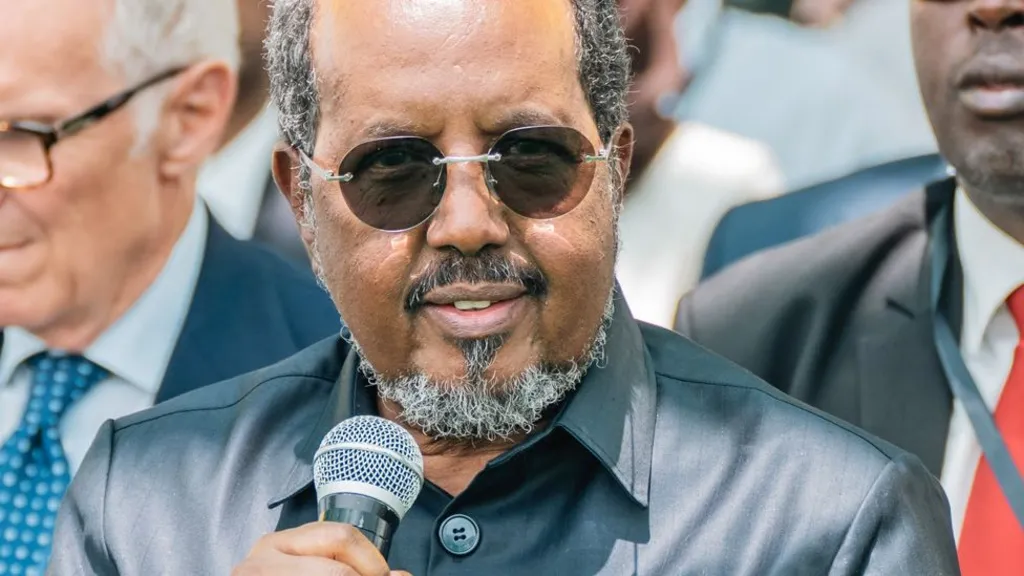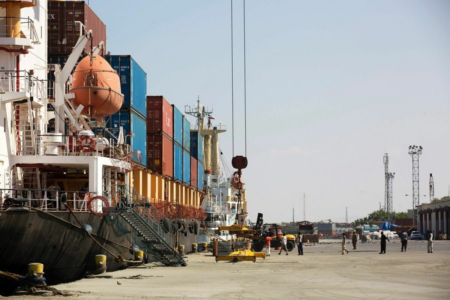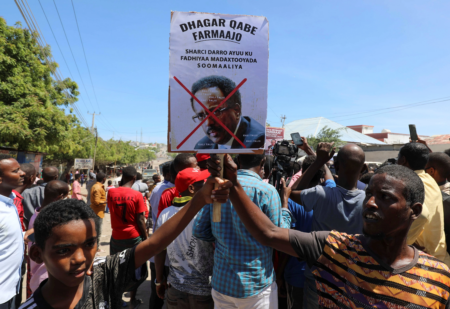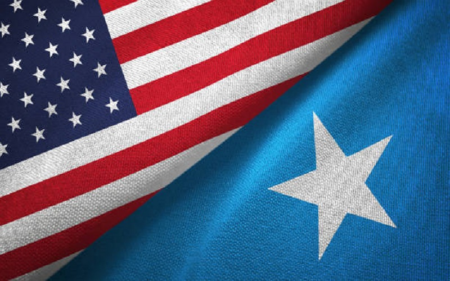Somali police have arrested four young men in Mogadishu’s Garas-Baaley district for allegedly insulting President Hassan Sheikh Mohamud in a dance video posted on TikTok.
The video, according to police, used a remix of the President’s 2022 campaign song but altered the lyrics to include derogatory content.
The suspects — Omar Isse Salad, Mahad Omar Yirid, Amin Mohamed Hassan, and Abdisalan Eenaanshe Ibrahim — are now in custody and expected to face formal charges.
Legal Grounds & Past Influencer Crackdowns
According to statements from the Somali Police Force, the video is seen as an offence that disrespects the dignity of the President and violates Somali constitutional law.
Such actions are treated seriously, particularly after recent precedent: in August last year, seven TikTok influencers were sentenced to six months in prison for inciting unrest and spreading “immorality” via social media.
Statement from Authorities & Public Warning
Brigadier General Abdifatah Aden of the Somali Police issued a strong warning following the arrest.
He stated that individuals who publish content insulting government leaders or institutions will be held accountable under Somali law.
He emphasized the importance of maintaining respect for national leaders and preserving the honor of public offices.
TikTok, Free Speech & Public Debate
These arrests have reignited conversations within Somalia around freedom of expression, the role of social media, and how far legal limits should go in regulating content.
Many young Somalis use TikTok for satire, commentary, and political critique.
While some inhabitants argue the suspects crossed a line, others express concern over potential suppression of dissent and that political speech might be vulnerable.
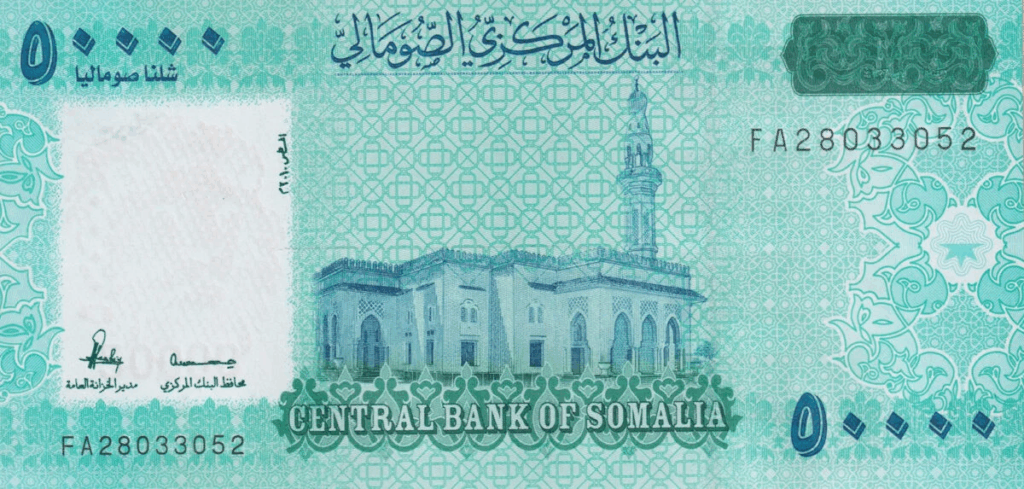
Implications for Somalia’s Digital Media Landscape
- Somali law currently lacks a detailed cybercrime code that fully defines the boundaries of online speech.
Authorities often rely on broad constitutional and penal code clauses to press charges. - The widespread use of foreign currency, migration, and diaspora activity increases engagement with social media platforms like TikTok, making content regulation more complex.
- If handled transparently, cases like this may push for clearer legislation regarding online speech, rights of citizens, and legal definitions for “insult,” “immorality,” and “public order.”
Public Reactions on the Arrest of the 4 Somali TikTokers
The four suspects will appear in court soon and face formal charges if evidence supports the Somali police claims.
Meanwhile, public reactions are mixed: some support the arrests as necessary to maintain respect and law, while others warn of chilling effects on free speech and youth creativity.
As Somalia balances its laws and norms in this era of social media influence, how the government handles this case may set precedents for future cases involving online content, political satire, and the intersection of law, culture, and digital expression.
Source: BBC




